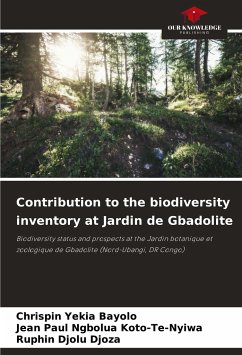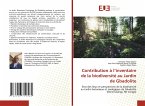The Jardin Botanique Zoologique de Gbadolite practises ex-situ conservation on a 300-hectare concession that is relatively visible as a result of daily activities that are gradually attracting visitors, an average of four people a month, mainly from students of all primary, secondary and higher education levels. Management constraints are considerable, and require the support of technical and financial partners in the following activities:- Botanical propagation nursery,- Planting and maintenance of botanical collections,- Care of animals in semi-liberty,- Breeding domestic exotic and wild species,- Production of renewable energy,- Construction of conservation, reception and safety infrastructures,- Supply of materials, equipment and various products. In short, the Botanical and Zoological Garden is subject to a number of constraints, all of which are being addressed by projects with varying timeframes and rapid impact, ranging from the short term to the long term.
Bitte wählen Sie Ihr Anliegen aus.
Rechnungen
Retourenschein anfordern
Bestellstatus
Storno








